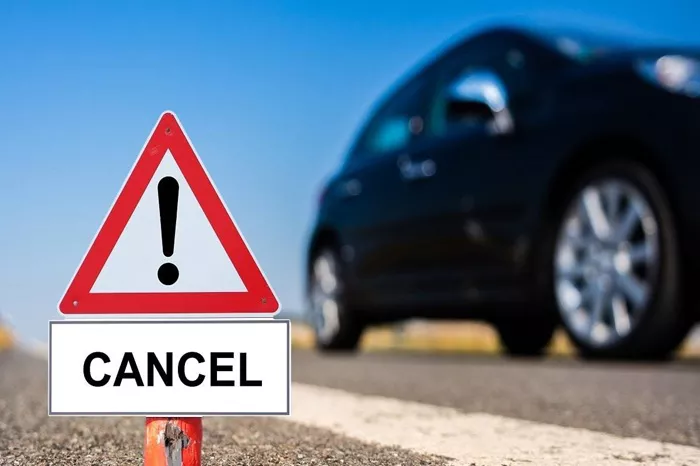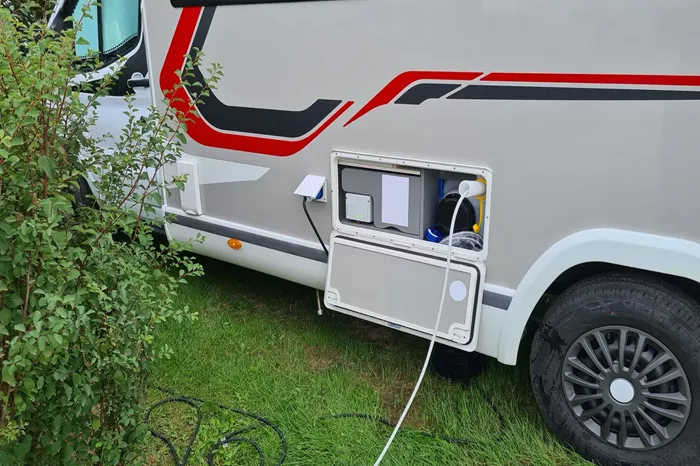Car insurance is a crucial aspect of vehicle ownership. It provides financial protection in the event of accidents, theft, or damage. However, circumstances change, and there may come a time when you need to cancel your car insurance policy. Knowing when and how to cancel your car insurance can save you money and avoid complications. In this article, we will explore various scenarios in which you might consider canceling your policy, the steps involved in the cancellation process, and the potential consequences of canceling your insurance.
Reasons for Cancelling Car Insurance
There are several valid reasons why individuals may choose to cancel their car insurance. Here are some of the most common ones:
Selling or Disposing of Your Vehicle
If you sell your car or decide to dispose of it, there is no longer a need for car insurance. Once the transaction is complete, you should notify your insurance provider to cancel the policy.
Switching Insurance Providers
Many people find better rates or coverage with different insurance companies. If you discover a more advantageous policy, you can cancel your current insurance. However, it’s important to ensure that your new policy is active before canceling the old one to avoid any coverage gaps.
Changing Coverage Needs
Life changes such as moving to a new location, changes in driving habits, or even the purchase of a new vehicle can affect your insurance needs. If your current policy no longer meets your requirements, consider cancellation.
Financial Constraints
In some cases, individuals may face financial difficulties that make it challenging to maintain car insurance. While it’s essential to have coverage, exploring cancellation may be a temporary solution. However, consider alternatives such as adjusting your coverage to reduce costs.
Vehicle Not in Use
If you have a vehicle that is not being used, you may decide to cancel your insurance. However, consider options like obtaining a non-owner policy or suspending coverage to avoid lapses in insurance history.
Steps to Cancel Car Insurance
Once you’ve determined the right time to cancel your car insurance, follow these steps to ensure a smooth process:
Review Your Policy
Before canceling, take the time to review your current policy. Understand the terms, cancellation fees, and any potential refund policies. Some insurers may offer prorated refunds for the unused portion of your premium.
Shop for New Coverage
If you are switching providers, secure a new insurance policy before canceling the old one. This ensures that you maintain continuous coverage, which is crucial to avoid penalties and legal issues.
Contact Your Insurance Provider
Reach out to your current insurance company to inform them of your decision to cancel. This can often be done via phone, online portal, or in person. Be prepared to provide necessary information such as your policy number and the reason for cancellation.
Obtain Confirmation
After initiating the cancellation process, request written confirmation from your insurer. This documentation serves as proof of cancellation and is essential for record-keeping.
Cancel Automatic Payments
If you have automatic payments set up for your insurance premium, ensure that these are canceled to prevent any future charges.
Notify Your State’s DMV
In some states, you may be required to notify the Department of Motor Vehicles (DMV) about the cancellation of your insurance policy, especially if you’re no longer driving the vehicle.
Potential Consequences of Cancelling Car Insurance
While canceling your car insurance can be necessary, it’s essential to be aware of the potential consequences:
Legal Penalties
Driving without insurance is illegal in most states. If you cancel your policy and drive without coverage, you risk fines, penalties, and legal repercussions.
Lapse in Coverage
A lapse in insurance coverage can negatively impact your insurance history. Future insurers may view a lapse as a sign of higher risk, potentially resulting in higher premiums.
Loss of No-Claims Discount
If you’ve accumulated a no-claims discount or other loyalty benefits, canceling your policy may result in the loss of these perks, which can affect your future insurance costs.
Difficulty Obtaining Coverage
If you cancel your policy and need to obtain new coverage, insurers may view you as a higher risk, especially if there is a gap in coverage. This can lead to higher premiums or denial of coverage.
Impact on Credit Score
In some cases, insurers may report lapses in coverage to credit bureaus, which can affect your credit score. This is particularly important if you rely on credit for significant purchases.
See Also: How Does Learner Car Insurance Work
Alternatives to Cancelling Car Insurance
If you are considering canceling your car insurance but are unsure about the consequences, there are alternatives to explore:
Adjusting Your Coverage
Instead of canceling your policy, consider adjusting your coverage. For example, if you have a low-value vehicle, you might opt for liability coverage instead of comprehensive coverage. This can lower your premium while still providing essential protection.
Suspending Coverage
If your vehicle is not in use for an extended period, some insurers offer the option to suspend coverage. This allows you to save money without losing your insurance history.
Seeking Discounts
Explore potential discounts that may apply to your policy. Many insurers offer discounts for safe driving, bundling policies, or having certain safety features in your vehicle.
Payment Plans
If financial constraints are a concern, speak with your insurer about payment plans. Many companies offer flexible payment options that can make premiums more manageable.
Conclusion
Deciding when to cancel car insurance is a significant decision that requires careful consideration. Whether due to selling your vehicle, switching providers, or adjusting to financial constraints, understanding the process and potential consequences is vital. By following the outlined steps and exploring alternatives, you can make informed decisions that protect both your finances and your legal standing on the road. Always prioritize continuous coverage to maintain a good insurance history and avoid unnecessary penalties.
FAQs
1. Can I cancel my car insurance at any time?
Yes, you can cancel your car insurance policy at any time. However, the timing may impact any potential refunds, fees, or penalties. Most insurers will have a cancellation policy that outlines how to proceed, including any required notice periods. It’s important to review your policy terms to understand any implications associated with cancellation.
2. Will I get a refund if I cancel my car insurance policy?
Typically, if you cancel your car insurance policy before its renewal date, you may receive a prorated refund for the unused portion of your premium. However, this depends on your insurer’s specific policies. Some insurers charge a cancellation fee, which could reduce your refund amount. Always ask for a detailed breakdown of your refund to understand what you might expect.
3. What happens if I cancel my insurance and do not replace it?
Cancelling your car insurance without securing a replacement policy can lead to significant legal and financial consequences. In most states, driving without insurance is illegal and can result in fines, license suspension, and other penalties. Moreover, a lapse in coverage can negatively affect your insurance history, making it difficult and potentially more expensive to obtain coverage in the future.
4. How do I cancel my car insurance?
To cancel your car insurance, start by reviewing your current policy to understand the terms and any potential fees. Next, contact your insurance provider through their customer service line or online portal to initiate the cancellation. Be prepared to provide your policy number and the reason for cancellation. After the process is initiated, request written confirmation to document the cancellation. Finally, ensure that any automatic payments are stopped to avoid future charges.
5. Can I cancel my car insurance online?
Many insurance companies offer online services that allow you to cancel your policy directly through their website or mobile app. However, the process may vary by insurer. While some may allow you to complete the cancellation entirely online, others might require you to call customer service for confirmation. Always check your insurer’s website for specific instructions on online cancellation.
6. What are the implications of canceling my car insurance mid-policy?
Cancelling your car insurance mid-policy can lead to a few consequences. First, there may be cancellation fees depending on your insurer’s policy. Second, if you cancel and do not replace it immediately, you risk driving without coverage, which can result in fines or legal repercussions. Finally, a mid-policy cancellation might be noted in your insurance record, which could affect future coverage rates.
7. Is it better to suspend my policy instead of canceling it?
Suspending your policy can be a great alternative to outright cancellation if you plan to be without the vehicle for a short time. Suspension allows you to temporarily pause coverage without incurring a lapse in your insurance history. This is especially beneficial if you plan to use the vehicle again in the near future, as it can help you maintain any discounts or loyalty benefits associated with your insurance.
8. How does canceling my car insurance affect my credit score?
While car insurance cancellations typically do not directly affect your credit score, a lapse in coverage might lead some insurers to report the gap to credit bureaus, particularly if it results in fines or other penalties. Additionally, having a history of gaps in coverage can signal higher risk to future insurers, potentially leading to increased premiums. Maintaining continuous coverage is advisable to protect both your insurance rates and credit standing.






















